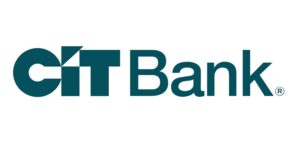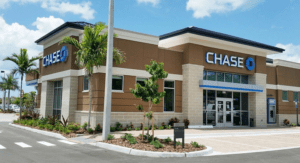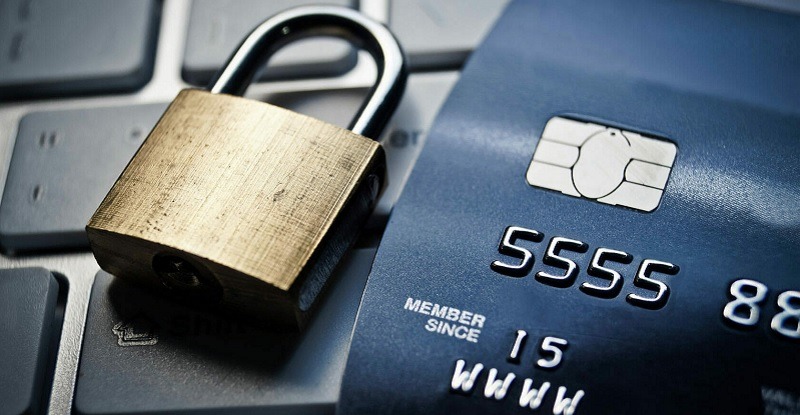 What are secured credit cards? Let’s take a step back and familiarize ourselves with the effects of bad credit score.
What are secured credit cards? Let’s take a step back and familiarize ourselves with the effects of bad credit score.
Individuals with bad credits scores may be unable to qualify for loans, and if they do get the loan, their rates may be higher than usual. They may also have a hard time securing an apartment lease or may have higher premium rates on auto and home insurance.
This is just a small list of some of the effects one may run into when they have a bad credit score. However, the list for how one gets bad credit score is even longer. Personal bankruptcy, foreclosure, or other scenarios can greatly impact your credit score. This is where Secured Credit Cards come in. These cards let you get a foot in the door and help revitalize your credit score and rebuild it.
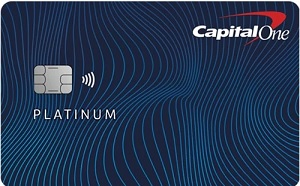 With the Capital One Platinum Secured: Unlike a prepaid card, this card will help you build credit when used responsibly, with regular reporting to the 3 major credit bureaus. You'll get an initial $200 credit line after making a security deposit of $49, $99, or $200, determined based on your creditworthiness; and be automatically considered for a higher credit line in as little as 6 months with no additional deposit needed Get access to your account 24 hours a day, 7 days a week with online banking to access your account from your desktop or smartphone, with Capital One's mobile app This card comes with no annual fee, and all the credit building benefits with responsible card use. |
What Is A Secured Credit Card?
Secured credit cards are designed for two typed of consumers:
- Those with thin or nonexistent credit scores whom wish to start building a credit score
- Those with subpar/bad credit scores whom with to rebuild their credit score
These cards have looser underwritings standards or requirements, but lose all the benefits that most unsecured cards have such as a bonus, cash back, benefits, rewards, etc. The catch is that no-credit-check secured cards tend to have higher annual fees, high APRs, restrictive terms, and no clear path to unsecured status.
Traditional secured credit cards still have credit checks. Requirements may vary, but it’s highly doubtful that you’ll qualify with a score below 500. FICO scored between 500-560 are pushing it. Some issuers may take you some may not, it all depends on other existing factors such as housing ratio or having an open bank account. Most issuers that do run credit checks avoid applicants with recent or non-discharged bankruptcies. Unfortunately, the only way you’ll know for sure whether your application is approved is to apply.
How do They Work?
- Security Deposits held in Collateral Accounts: The Secured credit cards are secured by having cash deposited security deposits in place as collateral for your card. These are usually FDIC-insured accounts with a token yield. Once your secured credit card application is approved, you’re required to make your security deposit before you can begin using your card. The minimum deposit amount usually ranges from $200 to $500. Some cards for example may allow deposits as low as $49. Maximum deposits vary per card, but it’s rare to come across one that allows deposits above $10,000.
- Credit Limits Tied Closely with Security Deposits: These cards’ limits are usually the same as the security deposit. If you were to deposit $500 into your security deposit, you’d have a credit limit of $500. Other account may only do 50% of your security deposit. So you’d only have a credit limit of $250 if you were to only put $500 in the security deposit. If you build a good relationship with your bank and present good spending habits, you may be able to raise your limit depending on the bank.
- Balance Payments: Like unsecured credit cards, secured cards require regular balance payments on a monthly schedule. Cardholders make these payments with cash on hand – not their security deposits, which remain untouched except in specific circumstances outlined below.
- Credit Bureau Reporting: Secured credit card issuers generally report credit utilization and payment patterns to the three major credit reporting bureaus: Experian, Equifax, and TransUnion. Before you apply, be sure to review your cardholder agreements and disclosures to confirm that this is in face your issuer. If your issuer reports responsible use and timely made payments, your credit score can be raised.
- Higher APRs: Secured credit cards generally have higher APR rates with them ranging above 20%, even in low interest rate environments. Promotions with low introductory APR rates are nonexistent, however secured cards from credit unions tend to have lower APR rates.
- Annual Fees: Most secured cards have annual fees, but are very modest with them ranging from $25-$50. The few cards that do not have annual fees may have a lot stricter underwriting requirements and are therefore likely off-limits to severely impaired applicants.
- Security Deposit Forfeiture and Refund: Security deposits will remain in a safe enclosed account until one of two things happen: the credit account becomes seriously delinquent, or the cardholder pays off the balance in full and closes the account. In the first case, the issuer seizes part or all of the security deposit, depending on the size of the past-due balance. In the second instance, the issuer returns the security deposit, with interest if applicable, to the cardholder.
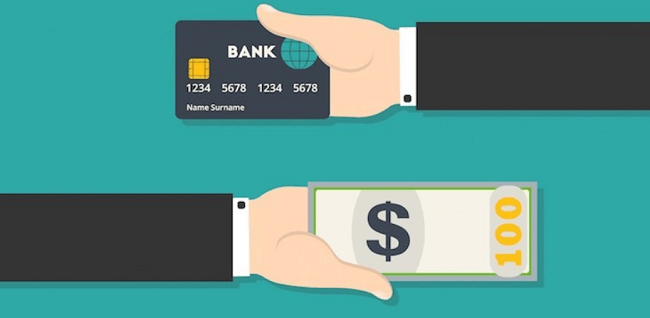
What are the Advantaged of Secured Cards?
- You can qualify with imperfect credit score
- You may still improve and build your credit score over time
- Makes certain types of purchases possible
- Flexibility to make emergency purchases
- Ability to make deposits and reservations
- Your deposits may earn interest
- Although this isn’t the case for all banks, and if they do they usually range from 0.5% – 0.3% APY.
- Everyday spending may earn rewards
- De Facto cap on credit card spending
- You have the opportunity to graduate to an unsecured credit card
What are the Disadvantaged of Secured Cards?
- Usually credit history
- Likelihood of Higher Interest rates
- Higher fees
- Relatively low spending limits
- You can’t outspend your deposit without paying off your balance
- Credit Bureau Reporting Might Not Be Discreet
- Potential for Damage to Your Credit Score
- No Security Deposit Access Until Your Account Is Closed
Alternatives to Secured Credit Cards
Apply for a secured credit card is not essential for building your new credit history – or rebuilding it.
There are other alternatives you can choose when making a choice
High APR Unsecured Credit Cards for Impaired Credit: There’s a small group of unsecured credit cards that offer high APR for those with subpar credit scores. For example, the Capital One Platinum Credit Card caters to those with a FICO score of 600 and under. Unsecured credit cards don’t require up-front security deposits.
The rub is that they typically have high regular APRs – in some cases, higher than secured credit cards’. Plus, their initial credit limits tend to be on the low side, often below $1,000. Their underwritings tend to be more strict as well and won’t offer any reward programs.
- Good For:
- Consumers who lack liquidity to cover secured cards’ security deposit requirements
- Decoupling cash on hand (security deposit) and spending/credit limit
- Spending with a revolving credit facility
- Bad For:
- Carrying balances from month to month
- Taking the first step after bankruptcy or an accumulation of adverse credit events
- Earning rewards for everyday spending
Secured Personal Loans: Just like secured credit cards, these loans are backed by a security deposit made by the borrower. However unlike secured credit cards, these are not credit facilities, these are fixed installment loans. Secured personal loans have existed for a while. They’re backed by the borrower’s security deposit that they make prior for the loan which is used as collateral.
Compared to other loan establishments, the APR rates aren’t nearly as high as unsecured credit card facilities which can reach up to 30%. If your credit score is really poor, your best bet to is try and request a secured personal loan from a bank you’ve had a relationship with before.
- Good For:
- Taking the first step after a major adverse credit event (possibly)
- Working with a familiar lender
- Making predictable payments over time
- Bad For:
- Controlling credit utilization from month to month
- Increasing or decreasing spending power over time
- Consumers with limited cash on hand
Cosigned Loans: Many types of installment loans, both secured and unsecured, are available as cosigned loans. Your cosigner is a trusted individual, most often a parent or spouse, who agrees to assume responsibility for the loan. If you default on the loan, the cosigner essentially agrees to clean up your mess by paying the remaining balance.
For this reason, lenders hold cosigners to high standards – they need very good credit scores and strong, lengthy credit histories. Since cosigners expose themselves to substantial financial and credit risk, they’re in short supply. If you know someone willing to go out on a limb to cosign a loan for you, you owe them one – and you owe it to yourself not to let them down.
- Good For:
- Securing a prime rate with a subprime credit score
- Increasing borrowing power
- Spreading borrowing risk
- Bad For:
- Borrowers who wish to retain their independence
- Controlling credit utilization from month to month
- Avoiding potentially awkward interpersonal situations
Entry-Level Unsecured Rewards Credit Cards: “Entry-level unsecured rewards credit cards” is not an official term used by credit card companies (or anyone else I’ve come across, for that matter). But it does accurately describe a class of credit cards that lives a step or two up from the high-APR unsecured credit cards referenced at the top of this section.
Entry-level unsecured rewards credit cards are often variants of better-known rewards credit cards. For instance, the Capital One QuicksilverOne Cash Rewards Credit Card is a less generous iteration of the Capital One Quicksilver Cash Rewards Credit Card, a much better-known product backed by a multimillion-dollar advertising campaign.
- Good for:
- Controlling credit utilization from month to month
- Financing everyday purchases
- Earning rewards on everyday spending
- Bad for:
- Carrying balances from month to month
- Taking the first step after a major adverse credit event
How To Transition To an Unsecured Credit Card?
After a period of time with your secured credit card you might start considering switching to an unsecured credit card. But what happens to the money you deposited into your secured card? First, any deposits made on the card will be sent back if you’ve paid off your balance in full.
Keep in mind that if you’ve been good about making on-time payments over a certain period of time, then issuers may switch you to an unsecured card. This might happen without you even requesting it. Equally as likely is that the card issuers will only upgrade you if you request it.
A word of caution if you want your deposit back and aren’t able to convert your secured card to an unsecured card, you might need to close the credit card account to make the switch. However, this might reduce your credit availability and lower your credit score.
 |
 |
Bottom Line
Depending on your situation, secured credit cards may be the best choice for you. If you wish to build your credit score from the bottom – or rebuild it, choosing a secured card is your best bet.
While you may not receive benefits or rewards from signing up for one, you’ll be able to safely build your credit and start your way to getting a great credit score. Remember, having a good credit score opens up different options for you like when asking for a loan, or trying to get an unsecured credit card with a great benefits and rewards program.
Hopefully you found this post useful, if you wish to read more, be sure to check out HMB and see our posts on more Bank Guides as well as the best Credit card bonuses and best savings rates.

